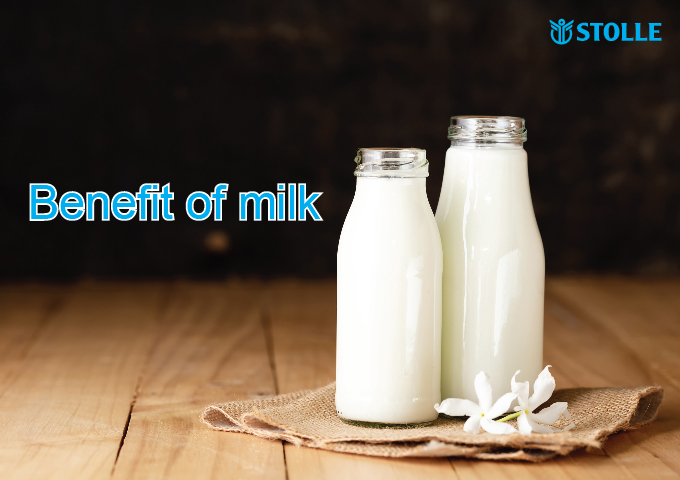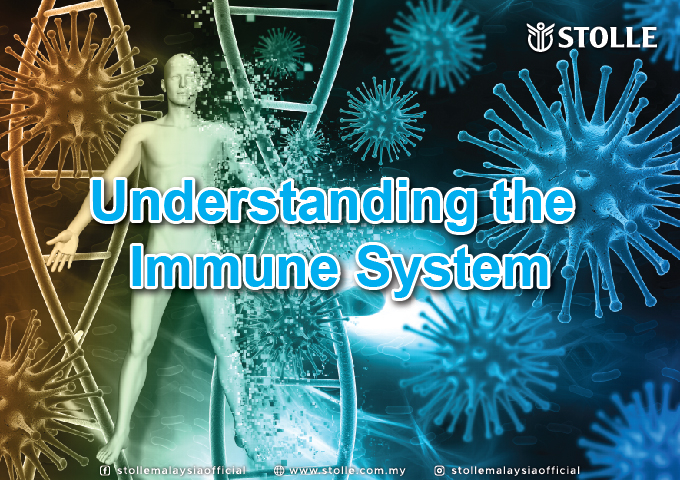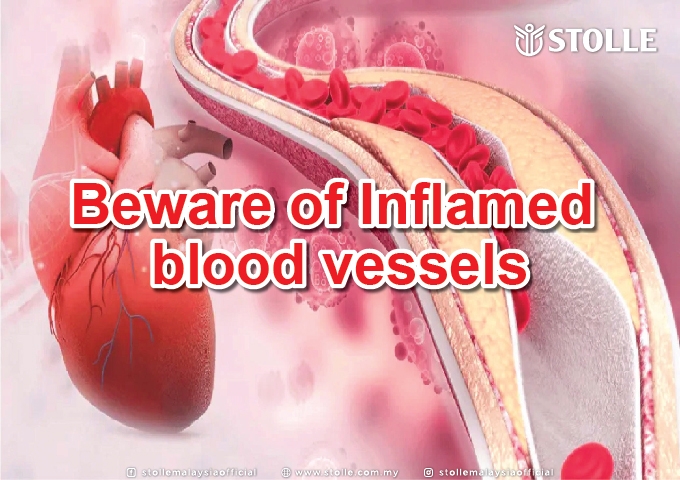Secret of Curcumin The Wonders of Turmeric: A Health Miracle Starting from the Golden Root Turmeric, a traditional herb native to tropical regions of Asia, has long been used as a culinary ingredient and a medicinal plant. Revered in Ayurveda and Traditional Chinese Medicine, its true “secret weapon” lies in its active compound – Curcumin. In recent years, curcumin has become a hot topic in scientific research and a beloved ingredient in the health and wellness community. What Are Turmeric and Curcumin? • Turmeric: Turmeric is a root-like plant known for its distinctive golden-yellow color. It is widely used as a spice, a natural coloring agent, and an herbal remedy. • Curcumin: Curcumin is the primary active compound in turmeric, responsible for its vibrant color and powerful health benefits. As a type of polyphenol, it exhibits strong antioxidant, anti-inflammatory, and antimicrobial properties. Why Is Curcumin Gaining Attention? Curcumin’s health benefits have been increasingly supported by scientific research. Numerous global studies have explored the positive effects of curcumin on health, including: 1. Potent Antioxidant Properties Curcumin is a highly effective antioxidant that neutralizes free radicals in the body, reducing oxidative damage to cells. Curcumin helps slow ageing and lowers the risk of chronic diseases by preventing excessive free radical activity. 2. Anti-Inflammatory Power Chronic inflammation is the root cause of many diseases, including cardiovascular disease, diabetes, and arthritis. Research shows that curcumin effectively inhibits the production of inflammatory markers, making it a potent anti-inflammatory agent. 3. Promotes Liver Detoxification Curcumin stimulates the liver to produce more detoxifying enzymes, speeding up the metabolism and eliminating toxins from the body while protecting liver health. 4. Supports the Immune System By enhancing the function of immune cells, curcumin helps the body combat pathogens and diseases more effectively, contributing to overall immunity. Why High-Purity Curcumin Matters The curcumin content in regular turmeric is only about 2-6%, making it insufficient to deliver its full range of health benefits through diet alone. Scientists recommend using high-purity curcumin extracts to achieve more significant effects. However, curcumin’s effectiveness is limited by its poor solubility and rapid metabolism, which result in low absorption by the human body. Increasing curcumin absorption is key to unlocking its full potential. Here are three common methods to enhance its bioavailability: 1. Combine with Healthy Fats Curcumin is a fat-soluble compound, so consuming it with healthy fats like coconut oil or olive oil can improve absorption. 2. Add Black Pepper (Piperine) Piperine, found in black pepper, significantly enhances curcumin’s bioavailability. Studies show that adding black pepper can increase curcumin absorption by up to 20 times. 3. Phospholipid Technology Advanced techniques like curcumin phospholipid complexes make curcumin more easily absorbed by the intestines. This technology increases absorption rates several times over traditional curcumin. How to Choose the Right Curcumin Product? When selecting curcumin supplements, it’s essential to consider the following: 1. High-Purity Extracts: Look for products containing at least 95% curcumin extract. 2. Scientific Formulation: Choose products that include piperine, phospholipid technology, or microencapsulation to enhance bioavailability. 3. Reliable Brands: Opt for reputable brands to ensure product quality and safety. Curcumin, the “golden ingredient” gifted by nature, is ushering in a new era of health and wellness. Incorporating bioavailable curcumin into your daily routine can aid in detoxification, boost immunity, and promote a lighter and healthier body. Let’s embrace this natural health miracle and start living a better, healthier life! 🌿✨ #HealthDetox #Curcumin #Antioxidant #VigorPlus
more


Difference Between Stolle Immune Milk and Colostrum In modern life, people are increasingly focused on the health of their immune systems. Therefore, immune-boosting products have granted more awareness to enhance immunity and defend against diseases. "Stolle Immune Milk" and "Colostrum" are two popular options. While both aim to improve immunity, they differ significantly regarding nutritional content, effectiveness, and suitability for long-term use. Let’s find out the differences between Stolle Immune Milk and Colostrum! Stolle Milk Colostrum Main Nutritional Components Specific antibodies (IgG, IgA), anti-inflammatory factors, macrophage activation factor, anti-atherosclerosis factors, lactoferrin, and full milk nutrition Regular immunoglobulins, growth factors, vitamins, minerals, and full milk nutrition Milk Collection Time Produced through a hyperimmunization method to ensure unique immune nutrients, no specific milk collection time Colostrum is obtained from the milk of cows within the first week after giving birth Target of Specific Antibodies Human body Calves Evidence of Efficacy Clinical Studies, Over 200 patents across 10 categories in 27 countries Scientific literature Suitability for Long-Term Use Suitable for long-term use, providing lasting immune support. Supported by 36 years of drinking studies showing no side effects and proven effectiveness Suitable for short-term use. There is insufficient literature supporting the safety and effectiveness of long-term colostrum consumption Stolle Immune Milk was invented by the mother-to-child immunity concept and works with New Zealand's Fonterra to get high-quality milk sources. Using the hyperimmunization method, Stolle Immune Milk is rich in patented immune nutrients, including specific IgG, IgA, anti-inflammatory factors, macrophage activators, and anti-atherosclerosis factors. These patented ingredients enhance immune responses, regulate excessive immune reactions (allergic, inflammation) and help to avoid autoimmune issues. Stolle Immune Milk is suitable for children over 1 year old, the elderly, pregnant women, athletes, and individuals with weakened immunity. Due to its gentle and natural components, it is safe for long-term consumption without safety concerns. Stolle provides a mild yet effective form of immune support, particularly for individuals with vulnerable immune systems. Immune Today, Healthy Everyday Start your journey towards a healthier life with Stolle today! Wondering the taste of Stolle Milk? Grab a sample today to explore the uniqueness and benefits of Stolle Milk!
more
Stay Active After Menopause Menopause: The Importance of Milk and Immune Balance Menopause is a natural stage in a woman’s life, typically occurring between 45 and 55. Due to changes in hormone levels, many women experience a range of physical and emotional shifts, including decreased bone density, weakened immune function, and a reduction in energy and vitality. Therefore, maintaining energy and health during this time becomes crucial. Drinking milk, supplementing calcium and vitamin D, and maintaining immune balance are all essential ways to help women navigate menopause smoothly. The Importance of Drinking Milk Preventing Osteoporosis: Increase Intake of Calcium and Vitamin D During menopause, the decrease in estrogen levels leads to a gradual decline in bone density, increasing the risk of osteoporosis and fractures. Research shows that postmenopausal women experience a bone density loss rate of about 1% to 2% per year. Milk is a primary source of calcium and vitamin D, both of which are vital for bone health. Women who consistently drink milk daily during menopause experience a significantly slower decline in bone density compared to those who do not. Moreover, the vitamin D in milk helps with calcium absorption and bone mineralization, further enhancing bone strength. Protein Supplementation: Maintaining Muscle Mass In addition to calcium and vitamin D, milk is rich in high-quality protein. Women going through menopause often experience muscle loss, leading to decreased physical strength and changes in body composition. The protein in milk helps repair and maintain muscle mass, preventing loss during menopause. Consuming an adequate amount of milk can help women maintain muscle strength and enhance vitality during this phase. The Importance of Immune Balance During menopause, a woman's hormone levels, particularly estrogen, decrease significantly, directly affecting the function of the immune system. Estrogen plays a crucial role in maintaining immune balance by regulating the activity of immune cells, enhancing the body's ability to fight infections, and reducing inflammatory responses. Reduced Estrogen and Weakened Immunity: As menopause begins, the reduction in estrogen can lead to a weakened immune system, making women more susceptible to infections like colds, flu, and other diseases. Additionally, the body’s anti-inflammatory capacity declines, increasing the risk of chronic inflammation. Increased Risk of Cardiovascular Disease: After menopause, the risk of cardiovascular disease in women rises significantly. Immune imbalance and excessive inflammatory responses are potential risk factors for cardiovascular diseases. Maintaining immune balance can help reduce the occurrence of cardiovascular conditions such as atherosclerosis. Osteoporosis: Inflammatory responses also contribute to the decline in bone density. The reduction in estrogen not only affects calcium absorption but may also increase bone resorption activity, leading to osteoporosis. If the immune system is overactive, inflammatory responses can exacerbate bone loss. Therefore, maintaining immune balance is essential for bone health. Stolle ImmNuPlus: Vitality for Menopause Stolle ImmNuPlus is developed with the concept of "maternal-child immunity," providing specific antibodies and immune nutrients that help prevent infections, colds, flu, and reduce inflammation, contributing to a healthier lifestyle for the whole family. In addition to the rich nutrients found in milk, Stolle ImmNuPlus contains patented immune nutrients, including specific IgG, IgA, and three major functional factors: anti-inflammatory agents, macrophage activators, and anti-atherosclerotic factors. These patented ingredients enhance immune responses and regulate overactive immune reactions, preventing autoimmune issues. This regulatory function helps maintain immune system balance, reducing problems like allergies and chronic inflammation. A healthy gut microbiome has a direct impact on overall immunity. Stolle ImmNuPlus promotes the growth of beneficial bacteria while inhibiting harmful bacteria, enhancing gut barrier function, and further strengthening the immune system. It effectively helps regulate blood lipids and blood pressure, supporting cardiovascular health. Therefore, it is recommended that menopausal women drink 1-2 cups of Stolle milk daily to maintain strong bones and muscles, effectively boost immunity, and bring lasting vitality and health to the body.
more
Benefits of Milk Milk is also known as a superfood due to its rich nutritional content and various health benefits. According to the Malaysian Dietary Guidelines, daily recommendation with 2-3 servings per day is suggested for Malaysians due to its essential nutrients and significant role in promoting overall health. I. Benefits of Milk Meets Calcium Needs. Milk and dairy products are important sources of dietary calcium. Calcium is essential for bones and teeth and for the functioning of the heart, muscles, and nerves. The recommended daily calcium intake for adults is around 1000 mg, varying by age and gender. 2-3 servings of milk daily can meet your daily calcium need as each serving of milk (about 240 ml) contains roughly 300 mg of calcium. Supports Bone Health Calcium and vitamin D work together to increase bone density and prevent osteoporosis. For growing children, adolescents, and older adults, adequate milk intake helps maintain strong and healthy bones. Several studies indicate that milk can lower the risk of fractures, especially among the elderly. Provides High-Quality Protein Milk is rich in high-quality protein, containing all essential amino acids. Protein is a fundamental component for muscle tissue repair and growth and is crucial for metabolism. Drinking milk after exercise can effectively aid in muscle repair. Supplies Various Vitamins and Minerals Milk is rich in essential micronutrients such as vitamins A, B2, B12, and D, which support eye health, skin, immune function, and the circulatory system. Helps with Weight Management Research suggests that moderate consumption of milk and dairy products can help maintain a healthy weight. The protein and fat in milk can increase satiety, reduce food intake, and help control appetite. Choosing low-fat or fat-free milk provides nutrients without unnecessary fat intake, making it an effective way to manage weight healthily. Supports Cardiovascular Health The potassium in milk helps regulate blood pressure. Drinking milk in moderation daily can help balance sodium and potassium levels, thus promoting cardiovascular health and reducing the risk of hypertension. The positive effects of low-fat dairy on heart health are especially notable. II. Recommended Groups for Milk Consumption Children and Adolescents Calcium and vitamin D are essential during the critical growth stages of children and adolescents. As a good source of calcium, milk promotes bone health and helps children achieve optimal height and bone density. Older Adults and Menopause women Bone density decreases with age, making older adults and menopausal women prone to osteoporosis. Consuming milk helps supplement calcium and vitamin D, which supports bone health and reduces the risk of fractures. Athletes and Fitness Enthusiasts Milk contains high levels of protein, which aids in muscle recovery and synthesis. Drinking milk after exercise can speed up muscle repair and enhance recovery. Pregnant and Lactating Women Pregnant and breastfeeding women have higher calcium needs to support the bone development of the fetus or infant. Milk, as an excellent calcium source, meets the nutritional needs of this specific group. In addition to the rich nutrients found in milk, Stolle Milk also contains patented immune nutrients, including specific IgG, IgA, and three functional factors: anti-inflammatory factor, macrophage-activating factor, and anti-arteriosclerosis factor. These patented components enhance immune response, regulate excessive immune reactions, reduce autoimmune issues, maintain a balanced immune system, and address allergies and chronic inflammation. Stolle Milk is suitable for various consumer groups, including children over one-year-old, elderly individuals, pregnant women, athletes, and people with weakened immune systems. Due to its gentle and natural ingredients, it is ideal for long-term use without safety concerns. Stolle offers a gentle and effective immune support option, particularly for those with vulnerable immune systems.
more
Diet for Hyperglycemia Hyperglycemia, or elevated blood sugar levels, refers to a condition where the glucose concentration in the blood exceeds normal limits, commonly associated with metabolic disorders like diabetes. Diet plays a crucial role in controlling and preventing hyperglycemia. According to the World Health Organization (WHO) standards, fasting blood sugar levels between 5.6 and 7.0 mmol/L are considered elevated, while levels above 7.0 mmol/L may be indicative of diabetes. If blood sugar remains uncontrolled for extended periods, it can lead to severe health complications such as cardiovascular diseases, kidney failure, vision loss, and nerve damage. The key to managing hyperglycemia lies in selecting foods that stabilize blood sugar levels and reducing the intake of foods that cause rapid spikes in blood glucose. Here are several essential dietary principles: 1. Low Glycemic Index (GI) Foods The Glycemic Index (GI) measures the effect of food on blood sugar levels. Foods are categorized into high, medium, or low GI. Low GI foods release glucose slowly, avoiding rapid blood sugar spikes. Typically, foods with a GI value below 55 are considered low GI, such as whole grains, oats, brown rice, and most vegetables. For example, white rice has a GI of 73, making it a high-GI food, whereas brown rice has a GI of only 55, making it a suitable alternative for a staple. Oatmeal, with a GI of 55, is also ideal for breakfast to maintain stable blood sugar. 2. High-Fiber Foods High-fiber foods not only enhance satiety but also slow the absorption of glucose in the intestines, helping to control post-meal blood sugar levels. Fiber-rich foods include vegetables, legumes, whole grains, and fruits. A daily intake of at least 30 grams of dietary fiber is considered beneficial. 3. Adequate Protein and Healthy Fats Protein and healthy fats help slow digestion, reducing the absorption rate of glucose and preventing sudden blood sugar spikes. Recommended sources of protein include low-fat dairy, fish, chicken, beans, and nuts. Good sources of healthy fats include olive oil, flaxseed oil, and avocados. 4. Reducing Sugar and Refined Carbohydrates Refined carbohydrates, such as white bread, candies, and sugary drinks, are quickly digested, causing a rapid rise in blood sugar levels. People with hyperglycemia should minimize the intake of these foods and opt for complex carbohydrates like whole grains, brown rice, and oats. For example, a 500 ml sugary drink may contain around 50 grams of sugar, causing a sharp increase in blood sugar. In contrast, sugar-free beverages or water do not have this effect. Therefore, choosing sugar-free drinks or water is an important step for hyperglycemia patients in managing blood sugar. Long-term hyperglycemia can harm multiple body systems, cause chronic inflammation, and lead to various complications such as kidney disease, retinal damage, heart disease, and diabetic foot. Stolle ImmNuPro: Your Partner in an Inflammation-Free Life Contains anti-inflammatory factors that help reduce systemic chronic inflammation. Reduces insulin resistance. Patented immune nutrients directly support the immune system, boosting immune function and promoting immune balance.
more
Diabetes Complications Did you know that every 7 seconds, one person dies from diabetes complications? Many people may think that diabetes itself is not frightening, but it's the complications of diabetes that are truly concerning. So, what exactly is diabetes? Diabetes is a chronic metabolic disease characterised by persistently elevated blood sugar levels. Prolonged high blood sugar can cause inflammation, which damages multiple systems in the body and eventually leads to various complications. These complications not only reduce the quality of life for patients but can also cause severe health problems and even be life-threatening. 1. Causes of Diabetes Complications The complications of diabetes mainly arise from long-term poor blood sugar control. High blood sugar can damage the inner walls of blood vessels, causing hardening and narrowing of the arteries, which subsequently affects blood circulation. Additionally, high blood sugar has a toxic effect on nerve tissues, leading to nerve damage. Prolonged high blood sugar can also weaken the immune system, making patients more susceptible to infections. 2. Common Diabetes Complications Diabetes complications can be broadly divided into acute and chronic categories. Here are some common complications: Diabetic Retinopathy: One of the most common complications in diabetes patients, caused by damage to the blood vessels in the retina. In severe cases, it can lead to blindness. Early symptoms are usually not obvious, but as the condition worsens, vision may gradually decline. Diabetic Nephropathy: Long-term high blood sugar can damage the filtering function of the glomeruli in the kidneys, leading to increased urinary protein and eventually causing kidney failure. Diabetic nephropathy is one of the leading causes of end-stage renal disease. Diabetic Neuropathy: High blood sugar damages nerve fibers, leading to symptoms such as abnormal sensations, numbness, and tingling, especially in the lower limbs. Neuropathy can also affect the digestive and cardiovascular systems, causing gastrointestinal dysfunction and arrhythmias. Diabetic Foot: Due to nerve damage and poor blood circulation, the feet of diabetes patients are prone to ulcers and infections, which in severe cases may require amputation. Diabetic foot is a major cause of disability in diabetes patients. Cardiovascular Diseases: Diabetes significantly increases the risk of coronary artery disease, heart attack, and stroke. This is mainly due to the worsening of atherosclerosis and impaired vascular function. Skin Infections and Periodontal Disease: Due to weakened immune function and poor blood circulation, diabetes patients are more susceptible to skin infections, slow wound healing, and periodontal disease. 3. Prevention and Management of Diabetes Complications The key to preventing and managing diabetes complications lies in good blood sugar control. Here are some preventive measures: Regular Blood Sugar Monitoring: Keeping blood sugar within the range recommended by your doctor is fundamental to preventing complications. Healthy Diet and Regular Exercise: A balanced diet and regular exercise are beneficial for managing blood sugar levels. Regular Health Check-ups: Including eye exams, kidney function tests, and nerve function assessments to detect complications early. Control Blood Pressure and Blood Lipids: High blood pressure and hyperlipidemia are high-risk factors for diabetes complications and should be controlled simultaneously. Quit Smoking and Limit Alcohol: Smoking and alcohol consumption can accelerate vascular and nerve damage and should be avoided as much as possible. Drink Stolle ImmNuPlus: Backed by over 60 years of research and more than 200 patents confirming its efficacy, as well as 36 years of consumption studies verifying its safety, Cidoli Immunoglobulin Milk is rich in immune nutrients, including specific antibodies, anti-inflammatory factors, and anti-atherosclerosis agents. It effectively helps regulate the immune system, blood lipids, and gastrointestinal function. Opt for ImmNuPro: With lactose removed and rich in immune nutrients that effectively relieve chronic inflammation, it is particularly beneficial for diabetic patients.
more
Why Choose Stolle Milk? What is Stolle Milk? It is a dairy product developed with the concept of "mother-child immunity." By consuming it, you can benefit from its specific antibodies and other immune nutrients to prevent pathogen infections, colds, flu, and reduce inflammation, thereby promoting a healthy lifestyle for your whole family. What makes Stolle Milk Outstanding? Strict Ingredient Selection Cooperate with Fonterra from New Zealand, high-quality milk sources are strictly selected from healthy dairy cows. These cows are raised in an environment free from antibiotics and hormones, ensuring the purity and naturalness of the milk. Advanced Production Process Dairy cows are regularly vaccinated with a 26-in-1 immune vaccine approved by New Zealand government authorities. The antibodies generated by the cows in response to the vaccine are present in the milk. The product is turned into a safe and trustworthy immune milk powder for consumption through patented hyperimmunization methods. Subsequently, advanced low-temperature spray drying technology is employed to maximize the retention of nutrients and active ingredients in the dairy product. This processing method not only preserves the nutritional value of the product but also ensures that no harmful substances are introduced during production. Moreover, Stolle production process adheres to strict food safety standards and undergoes multiple quality checks to ensure that each batch meets the highest safety requirements. Patent Certification With over 60 years of research, Stolle has built a solid foundation in product quality and has obtained over 200 patents in 10 categories across multiple countries and regions. This scientific rigour has given the brand a strong foundational reputation. What Health Benefits Can Immunity Milk Provide? Immune System Balance In addition to the rich nutrients in milk, Stolle Milk is also rich in patented immune nutrients, including specific IgG, IgA, and three major functional factors: anti-inflammatory factors, macrophage activation factors, and anti-arteriosclerosis factors. These patented ingredients not only enhance immune responses but also regulate excessive immune reactions, preventing autoimmune disease. This regulatory effect helps maintain normal immune system balance, reducing allergies and chronic inflammation. Improving Gut Health The gut microbiome has a direct impact on overall immunity. Stolle Milk promotes the growth of beneficial bacteria and inhibits the proliferation of harmful bacteria, thus improving gut barrier function and further enhancing the immune system. Maintaining Cardiovascular Health Stolle Milk can effectively regulate blood lipids and blood pressure, aiding in the regulation of cardiovascular health. Stolle Milk is suitable for various consumer groups, including children (>1 year), the elderly, pregnant women, athletes, and individuals with weakened immune systems. Due to its gentle and natural ingredients, it is particularly suitable for long-term consumption without concerns about safety. Especially for individuals with fragile immune systems, Stolle offers a gentle and effective immune support.
more
Understanding the Immune System Have you ever heard that the immune system is the body’s best doctor? The immune system is critical for defending the body against pathogens, foreign substances, and harmful microorganisms. It consists of many different types of cells, tissues, and organs that work together to identify and destroy potential threats, thereby maintaining the body’s health. The immune system is primarily divided into: Innate Immunity: Innate immunity refers to the non-specific defense mechanisms that the body is born with. It serves as the first line of defense for the immune system and can respond rapidly within minutes to hours after a pathogen invasion. Components of the innate immune system include the skin, mucous membranes, macrophages, natural killer cells, neutrophils, etc. Adaptive Immunity: Adaptive immunity refers to the specific defense mechanisms that are gradually developed after birth through exposure to specific pathogens or through vaccination. Although the response time is longer, adaptive immunity is highly specific and has a memory function, allowing it to respond faster and stronger upon subsequent exposure to the same pathogen. The adaptive immune system includes lymphocytes (T cell and B cell), lymph nodes, spleen, and bone marrow. The Importance of Immune Balance Immune balance refers to the delicate balance between the immune system's response and regulation. When the immune system functions properly, it can effectively recognize and combat external threats while avoiding excessive reactions to the body's tissues. However, if immune balance is disrupted, it can lead to a range of health problems: Overactive Immune Response: When the immune system overreacts, it may attack the body’s healthy tissues, leading to autoimmune diseases such as rheumatoid arthritis or lupus. An overactive immune response can also result in allergic reactions, such as hay fever or food allergies. Immunodeficiency: When the immune system is underactive, the body’s ability to defend against external pathogens is weakened, making it more susceptible to infections from viruses, bacteria, or fungi. Moreover, inefficient immune responses can allow abnormal cells to proliferate, potentially leading to cancer, as the system fails to recognize and eliminate abnormal cells in time. Maintaining immune balance is crucial to preventing these issues. How to Maintain Immune Balance Maintaining immune balance requires effort in various areas, from leading a healthy lifestyle to adopting reasonable dietary habits, all of which significantly impact the function of the immune system. Here are some ways to maintain immune balance: Balanced diet Regular exercise Sufficient sleep Stress management Good hygiene practices Drinking Stolle Immune Milk Stolle ImmNuPlus Effectively Builds Immune Balance: Over 60 years of research, 200 global patents, and more than 20 scientific studies make it stand out Patented active factors, including Specific IgG and IgA, anti-inflammatory factors, macrophage activation factors, and anti-atherosclerosis factors directly supporting a balanced immune system. Simultaneously maintains digestive system health, protects the lungs, and stabilizes cardiovascular health. Exclusive ingredient Milk Protein Concentrate is added, providing 1.5 times stronger protection. Your best choice for your family's health!
more
Beware of inflamed blood vessels Vasculitis, as the name suggests, is a disease that causes inflammation of the blood vessels and is considered a rare inflammatory condition. It involves inflammation of the blood vessel walls, which can affect the integrity of any type and size of blood vessel, from large arteries to tiny capillaries. This condition can lead to thickening of the blood vessel walls, thereby narrowing the width of the vascular channels. When blood flow is obstructed, a series of health problems can arise, including: Organ Damage: Vasculitis can affect the organs and tissues supplied by blood. For example, if there is insufficient blood supply, vital organs such as the heart, kidneys, lungs, and brain may be damaged. Aneurysms: Inflammation and weakening of the blood vessel walls can lead to the formation of aneurysms. A ruptured aneurysm can cause internal bleeding, which can be life-threatening. Thrombosis: Inflammation can lead to abnormal blood clotting, causing thrombosis, which further obstructs blood flow and can potentially trigger a heart attack or stroke. There are many types of vasculitis, and the causes of vasculitis are diverse, but mostly caused by autoimmune diseases. Different types of vasculitis tend to occur in specific age groups, but vasculitis can affect individuals of any age and gender. What are the symptoms of vasculitis? Most types of vasculitis share general signs and symptoms such as unexplained fever, headache, fatigue, weight loss, and widespread pain, and may be accompanied by rashes, arthritis, kidney failure, and more. Symptoms can vary depending on the specific blood vessels affected. How can we protect our vascular health and prevent vasculitis in daily life? Healthy Diet Eat more antioxidant-rich foods: Such as fruits, vegetables, whole grains, nuts, and turmeric. Choose healthy fats: Such as olive oil, avocados, and omega-3 fatty acids found in fish, which help reduce inflammation. Reduce processed foods and sugar: Processed foods and high-sugar diets may promote inflammation and should be avoided as much as possible. Regular Exercise Engage in at least 30 minutes of moderate-intensity exercise daily, such as brisk walking, swimming, or cycling. Exercise helps improve blood circulation and reduce inflammation. Combine aerobic exercise and strength training can comprehensively improve cardiovascular health. Maintain a Healthy Weight Obesity is a risk factor for many cardiovascular diseases and inflammation. Maintain a healthy weight through a balanced diet and regular exercise. No Smoking Smoking damages the inner walls of blood vessels and increases inflammation. Quitting smoking is an important step in protecting blood vessel health. Control Chronic Diseases Reduce Stress Maintain Good Sleep Habits Adequate sleep is crucial for body repair and immune system health. Aim for 7-9 hours of sleep each night to help reduce the risk of inflammation. Drink Stolle Immune Milk ImmNuPlus is rich in immune nutrients, which can effectively assist in regulating immunity, reduce blood pressure and blood cholesterol level, as well as support gastrointestinal health. Stolle ImmNuPlus support immune balance and your heart health! Immune Today, Healthy Everyday!
more







